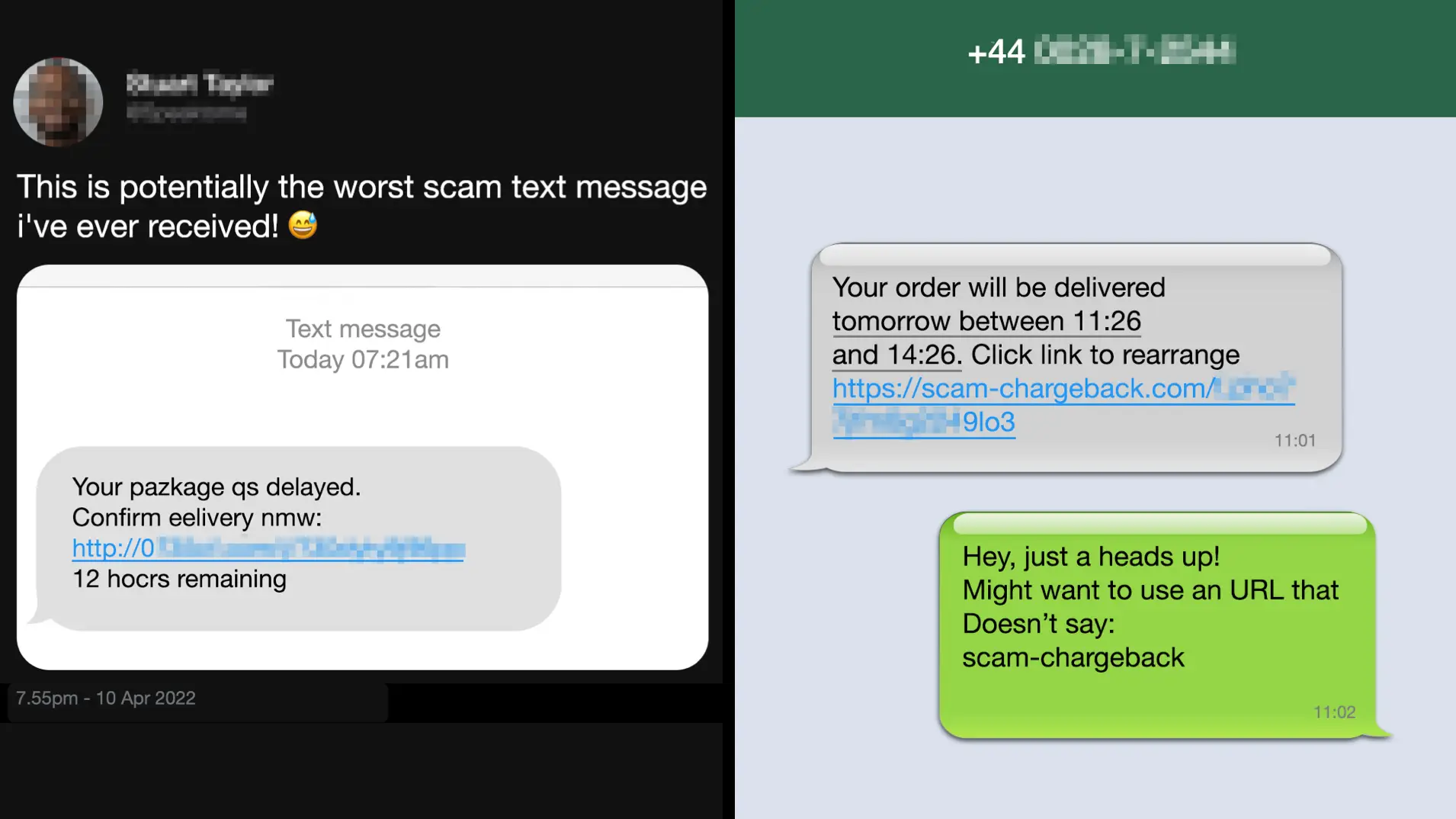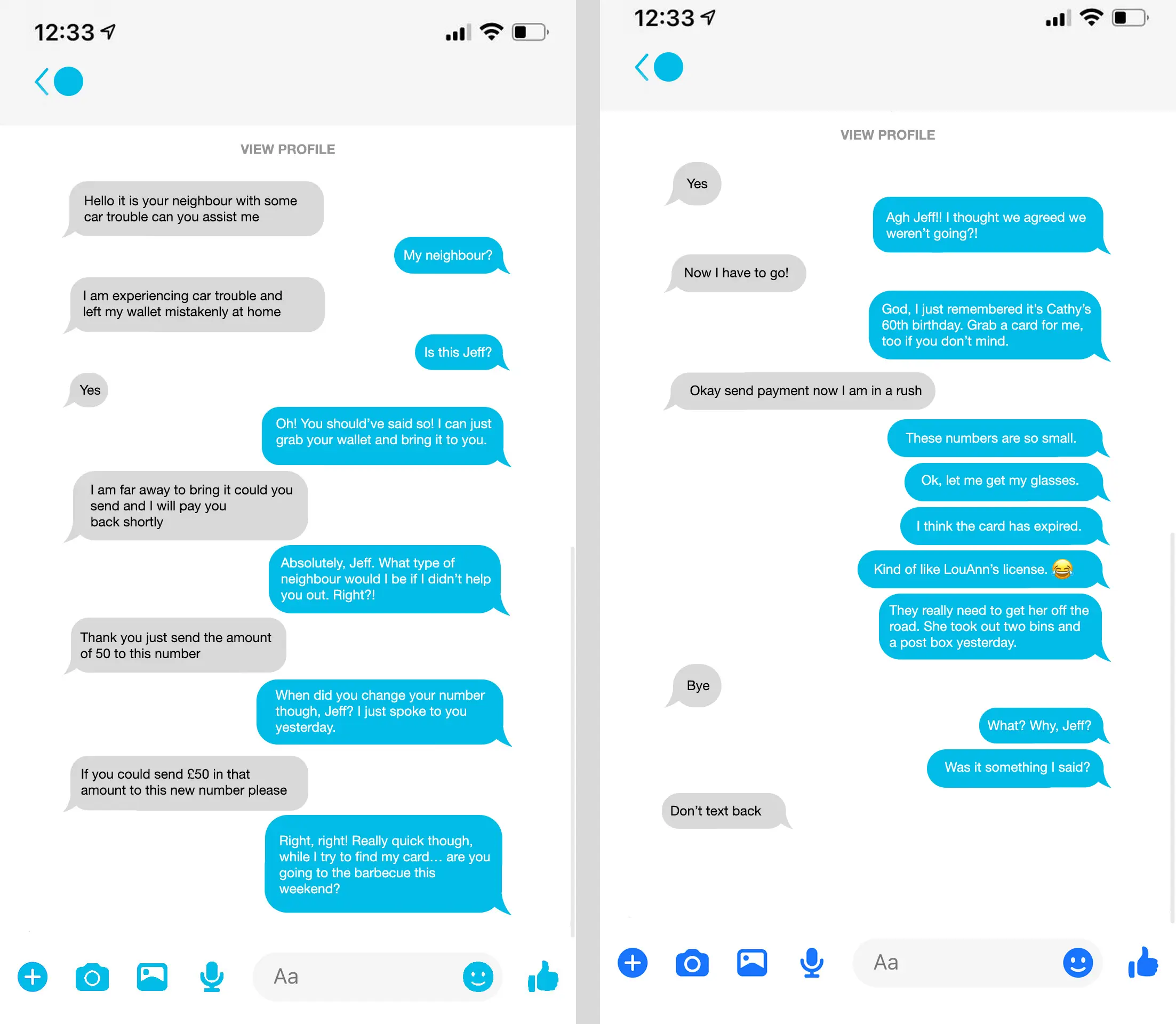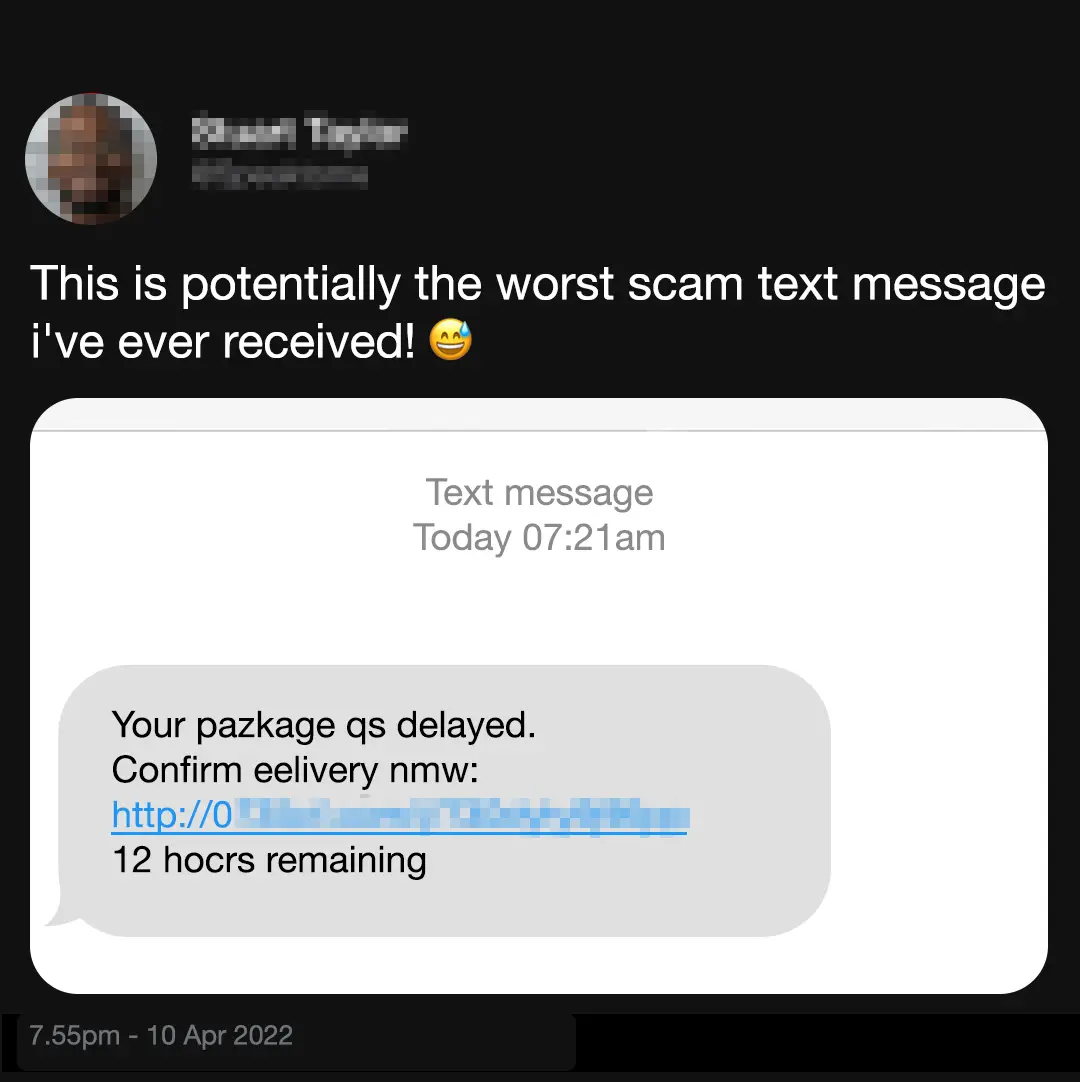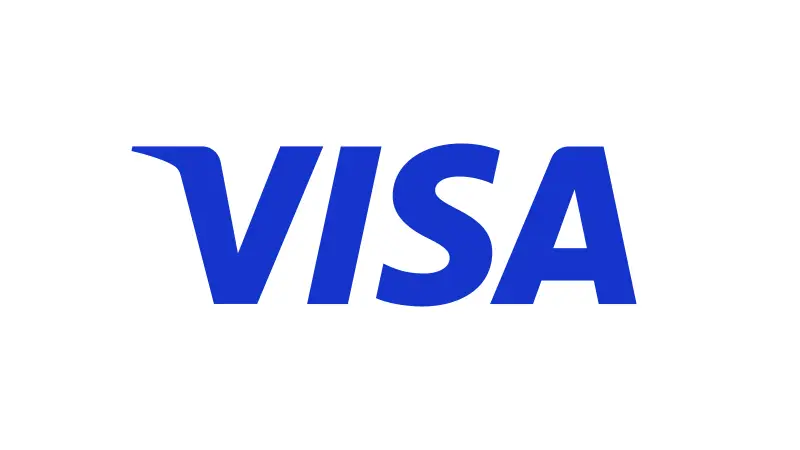
If you see these words or phrases, it’s a red flag
How confident are you that you’d be able to spot fraud? Probably pretty sure. But whether it’s via text messages, social DMs or through email, online payment fraud is getting more sophisticated all the time. Visa is encouraging you to learn about Fraudulese – the language of fraud – to help you recognise the most common words, phrases and language techniques used by fraudsters. Did you know that watching for words like ‘click here’, ‘account information’ and ‘gift card’ can help you better spot the signs of fraud?
Here are some examples of what to look out for so you can beat fraudsters at their own game.
Suspicious asks
Advert

One of the most infuriatingly clever fraudulent messages is when you get asked to rearrange a delivery or click a link to track a parcel. These “suspicious asks” work so well because chances are, you might be waiting for a fun delivery and why wouldn’t you want to make sure it gets delivered to the right place? If you’re in a rush it can be so easy to click these links but it’s always worth double checking who the message is from. Is it from a company or courier you recognise?
Sometimes they make it really believable by faking a popular brand name in the message but take a breath and think - have you even ordered from there before? Even if you might be desperate for those new trainers to arrive – it’s always best to read the message carefully – and if you think it doesn’t seem real don’t click on any links or reply. I mean, they make it easier for us when they actually include the word “scam”.
Pretending to be a legit person/company

A lot of the time, fraudsters work so hard to convince you of their credibility, using words and phrases that you might find in genuine communications. They work so hard in fact that you just start to think, just get a proper job! It would be much less hassle. But here we are.
It can actually be quite hard to tell the difference so if you’re not sure, the best thing to do is get in touch with the sender using a different form of communication. For example, if they sent you a text message - call them on the official number on their website and ask what’s going on. Or if they DM you on social media, find a legit email address and start asking questions.
Badly spelled messages

This one is truly just baffling - they’ve gone to the effort of setting up a scam, and they can’t even be bothered to whizz it through spell check. It’s falling at the last hurdle. It’s making a brew and letting it go cold. It’s putting a pizza in the oven after a night out and burning it! But apparently, it’s actually really common amongst fraudsters. That’s why you should always double check the spelling and grammar of a message before you do anything. Chances are if they’re spelling package as “pazkage” and the sender email address says Bill but they sign off Bob – it might be fraud.
Urgent actions
Let’s be honest, if you’d won the lottery it’s unlikely you’d get a random text from a random number with your winnings at the end of a link. Fraudsters have a tendency to create a sense of urgency. They think if you panic that you’re going to miss out on something, or something bad will happen if you don’t react, you’ll let your guard down. This is why they use phrases like ‘send (…) here’ or ‘click (…) below’, and use undated timeframes such as ‘in 48 hours’ or ‘by tomorrow morning.’ Just stay cautious, and if you get a message that says “HURRY HURRY” it’s probably fake.
Keep an eye out for ‘Fraudulese’ and the tactics used by fraudsters. If you’re ever in doubt, it might be worth double checking it with someone you know and trust. Who knows - sharing your experience might save someone else from falling victim too!
For more information visit Visa.
Topics: Money
